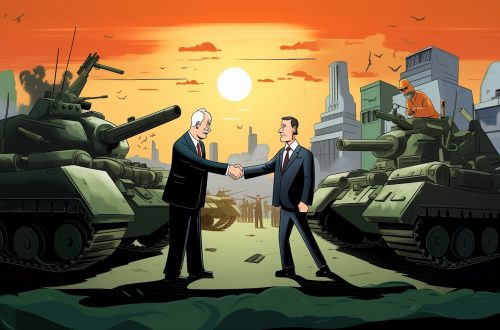Writing in The Guardian, Jonathan Freedland has argued that not only is the Israeli government’s action in Gaza wrong, it is “utterly self-defeating”:
More Israelis have died in the operation to tackle the Hamas threat than have died from the Hamas threat, at least over the past five years. Put another way, to address the risk that hypothetical Israeli soldiers might be kidnapped, 33 actual Israeli soldiers have died.
I first should point out an inconsistency in his article. Freedland earlier states that the Israeli concern is not that specifically soldiers will be kidnapped but that civilians might be. The tunnels are “designed to allow Hamas militants to emerge above ground and mount raids on Israeli border villages and kibbutzim, killing or snatching as many civilians as they can.” He even seems to accept that the tunnels are intended for kidnapping purposes by noting that “tranquillisers and handcuffs were reportedly found in those tunnels.”
His implication is clear: perhaps the odd person might get kidnapped, but better that than 33 soldiers lose their lives trying to prevent such an action.
I disagree with Freedland and I will do so initially by highlighting an analogy which in itself fails on certain levels to be a good analogy, but on another level it is an ideal analogy. The analogy is one discussed by the Harvard philosopher Michael Sandel in his popular book, Justice: What’s the Right Thing to Do? (Penguin, 2010). It is a true story and dates back to the 1970s.
In summary, Ford had a car, the Pinto, where it knew the fuel tank was prone to explode in the event of a collision. For a small cost per car it could fix the problem. But Ford chose not to do so for a utilitarian reason. Ford estimated that the cost in compensating those that died through exploding tanks would be less than the costs of installing a safety device in all the cars. This was the approach taken. Ultimately the decision process reached the court and the jury was outraged. Ford were fined punitive damages for such behaviour.
The flaws with this analogy are obvious: comparing finances with lives lost. However, the principle is valid: the right thing to do is not necessarily the thing that costs the least. And it does not matter if that is in lives or in money. The simple utilitarian approach is not satisfactory. It ignores duty. In the case of Ford its duty was to install the safety device and, in the case of Israel, very high on the list, is the duty to protect its population from a hostile attack.
While Freedland’s negotiated solution to the crisis between Israel and the Palestinians might be ideal, this takes time (and has not proved successful for decades) and the Israeli government’s knowledge about the tunnels might not allow so much time. Something had to be done. It is unthinkable that a government, any government, should acceptably say to its population: “Some of you might get kidnapped. We are sorry about that, but we are not willing to risk our soldiers’ lives to protect you from kidnap.”
The Israeli government could not know in advance how many, if any, soldiers’ lives would be lost following the Gaza ground invasion decision. According to the Jerusalem Post, the toll by yesterday stood at 43. Unfortunately, in war, soldiers do die. But it is understood that this is a risk soldiers (even conscription soldiers) take. Civilians also die in war, but they should not be deliberately targeted and they should be protected. Hamas fail on their side of the equation. They deliberately target civilians and hence commit war crimes. On its side of the equation Israel should not also fail. It should protect its population.
A following point is also relevant. For Freedland’s utilitarian calculation the input data should also be accurate. He seems to assume that the number of soldiers or civilians killed or kidnapped via the use of Hamas’s network of tunnels will be miniscule. The Gatestone institute report of a plot planned for the Jewish New Year, September 24:
The Hamas plan consisted of what was to be a surprise attack in which 200 fighters would be dispatched through each of dozens of tunnels dug by Hamas under the border from Gaza to Israel, and seize kibbutzim and other communities while killing and kidnapping Israeli civilians.
We are dealing here in counterfactuals but if this alleged plot was allowed to proceed, the amount of Israeli citizens killed or kidnapped might be far greater than the amount of soldiers that lose their lives in the actual Gaza offensive. If so, under its own fundamental principle, Jonathan’s Freedland utilitarian argument would be completely shattered.


